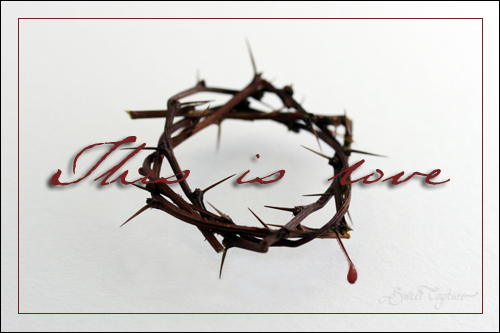 START WITH SCRIPTURE:
START WITH SCRIPTURE:
John 10:11-18
CLICK HERE TO READ SCRIPTURE ON BIBLEGATEWAY.COM
OBSERVE:
This is one of the several “I Am” statements made by Jesus in the Gospel of John. Taken alone, it is a wonderful metaphor that Jesus uses to illustrate his care for his “sheep” and his willingness to die for them. But as part of the string of “I Am” statements it is also a testimony to his close identification with the great I Am that I Am of Exodus 3:14, the Lord of all.
Considered as a description of his ministry, though, it is also very powerful. He draws a contrast between the good shepherd and the hired hand — the good shepherd lays down his life for his sheep in the face of danger; the hired hand runs away.
So there are two threats to the flock here.
One is external — first, in John 10:10 Jesus references the thief who:
only comes to steal, kill, and destroy.
Second, there is the wolf.
And then there is a third threat, the internal threat — those who have been entrusted with the flock who run away when there is danger because they care nothing for the sheep.
Not only does the good shepherd lay down his life for the sheep, there is also a relationship between shepherd and sheep:
I am the good shepherd. I know my own, and I’m known by my own.
And this relationship between shepherd and sheep is predicated on Jesus’ relationship with the Father:
the Father knows me and I know the Father.
There is an interrelatedness here from Father to Son, Son to Father, and through the Son to God’s people.
However, this is not an exclusive relationship. Jesus has:
other sheep, which are not of this fold.
They too will hear the voice of the shepherd and follow him. The image Jesus gives would have been familiar to a culture where sheep herding was common. A flock of sheep will “imprint” on a shepherd, and recognize his voice when he calls.
And Jesus makes it clear that though he is calling sheep from other places, all will be united in him:
They will become one flock with one shepherd.
Finally, Jesus alludes to the source of his unique relationship with the Father:
Therefore the Father loves me, because I lay down my life, that I may take it again.
In other words, Jesus is obedient to the Father, and though he be crucified will be raised from the dead.
In as clear a statement as can be made, Jesus declares that he is not a “victim” or a passive player in this drama. He says of his life and death:
No one takes it away from me, but I lay it down by myself. I have power to lay it down, and I have power to take it again. I received this commandment from my Father.
His care for the sheep, even to the point of death, and his obedience to the Father, is completely his choice.
APPLY:
We see here Jesus declaring to us that he is the Good Shepherd:
- He lays down his life for us.
- In his relationship with the Father is found the grounds for our relationship with the Father.
- Jesus will call people from throughout the world to be a part of his flock.
- We will all be one flock belonging to the one shepherd.
But who are the hirelings who run away when the wolf comes? Are we best to not focus on their cowardice and/or indifference? Are they the pastors who teach contrary to God’s Word, or who just don’t show up when the chips are down?
Obviously, those who truly belong to Jesus, according to his own description, are those who know him, follow his voice, and who seek to bring others into the flock that belongs to Jesus.
RESPOND:
I have always been a little reluctant to call myself “pastor,” which means “shepherd.” We have one Shepherd, who is Jesus.
Instead, when I was still serving a church, I facetiously told people that I was merely a sheepdog. The sheepdog is the one who tries to run around rounding up the sheep at the behest of the Good Shepherd, and maybe barks at them a little.
But my own personal goal is to know the voice of the Good Shepherd and to follow him at all costs.
Lord, for your willingness to lay down your life for the sheep I am supremely grateful. Keep my ears sharp for your voice and lead me wherever you would have me go. Amen.
PHOTOS: “Great Pyrenees Sheep Dog Guarding the Flock” by Don DeBold is licensed under a Creative Commons Attribution 2.0 Generic license.


